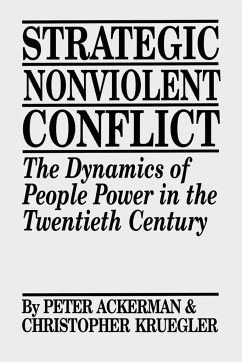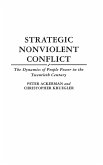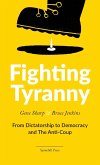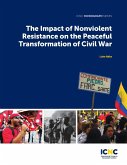Nonviolent action, well planned and implemented, is shown in this lucid, timely, and compelling work to effect dramatic outcomes against opponents utilizing violence. Ackerman and Kruegler recognize that not all nonviolent efforts meet with success, and they are careful to stress that a nonviolent approach involves great risks as well as opportunities. It is the effectiveness of the strategies employed which will determine whether or not those using nonviolent means can prevail against opponents who rely on violence in pursuit of objectives. Twelve strategic principles are established in this book which serve as a conceptual foundation to enhance the prospects of success in nonviolent campaigns. The authors also develop six twentieth-century examples of nonviolent action from the early Russian Revolution of 1904-1906 through the Solidarity movement in 1980-1981. Each campaign narrative constitutes a fascinating reading experience and illustrates common themes, strategies, and important aspects of behavior on the part of major participants in nonviolent encounters. This is a singularly important book. It offers more than a mere plea for nonviolence. Ackerman and Kruegler introduce their work by noting the surprising extent to which nonviolent sanctions are currently employed to pressure adversaries in the international political arena. They go onto provide hard lessons based on important, and often painful, historical efforts; principles to govern the choice and implementation of strategies when nonviolent action is the determined response; and insightful analysis to guide assessment and policy. A work which will focus analysis, inform decision-making, stimulate policy consideration, and invigorate research, this volume will well serve professionals and students in international relations and numerous related fields.
Hinweis: Dieser Artikel kann nur an eine deutsche Lieferadresse ausgeliefert werden.
Hinweis: Dieser Artikel kann nur an eine deutsche Lieferadresse ausgeliefert werden.








